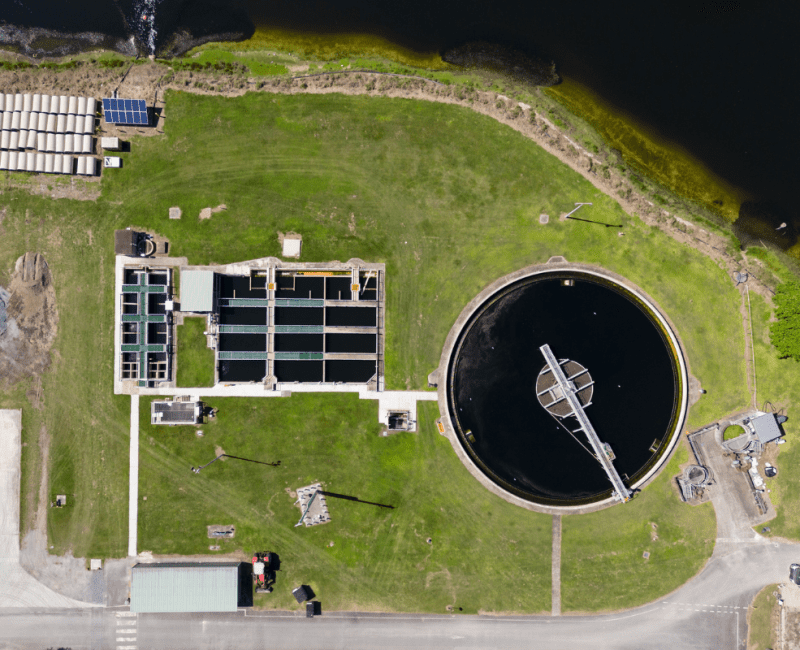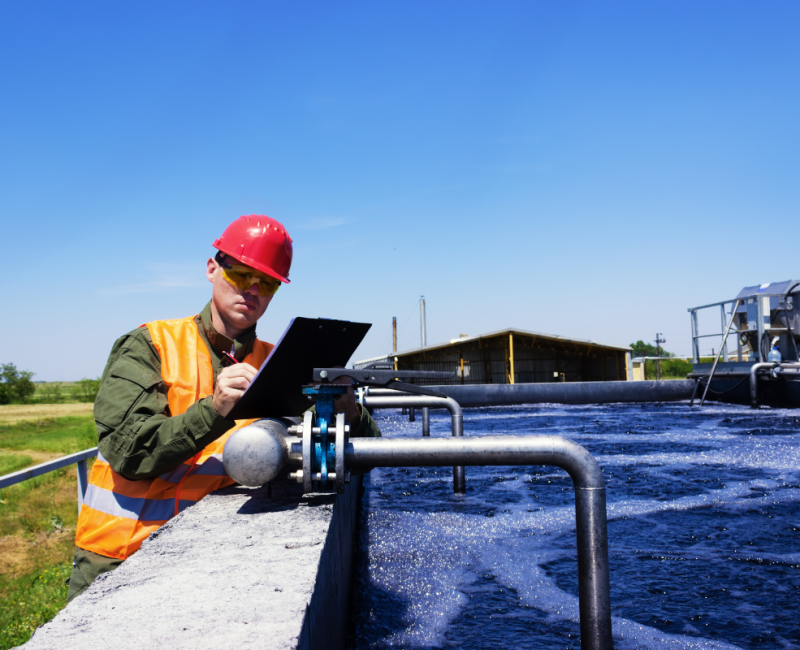A collaborative effort to enhance the efficiency and efficacy of water treatment validation, WaterVal is a Validation Framework which provides a standardised and streamlined approach for ensuring the safety and effectiveness of water treatment processes.
A Collaborative Framework for Water Treatment Validation
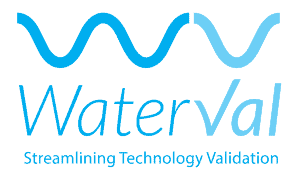
WaterVal is a nationally-developed Validation Framework for water treatment processes in Australia. Developed through a collaborative effort between researchers, water utilities, regulatory bodies, and the private sector, WaterVal aims to streamline the validation process and ensure the effective removal of contaminants from water sources.
The WaterVal Validation Framework is underpinned by Validation Protocols, which are independently developed and agreed methodologies to assess contaminant removal. Each Validation Protocol is designed based on nine Protocol Elements, ensuring consistency and uniformity for users. The Framework and Protocols are applicable to a broad range of water sources and complement the objectives of the Australian Guidelines for Water Recycling and the Australian Drinking Water Guidelines.
Currently, there are five Validation Protocols which have been developed and, through WaterRA, ongoing research to fill the most important knowledge gaps will continue to refine and enhance the framework and develop future Validation Protocols.
Validation is the substantiation of the ability of a treatment process to effectively control hazards, such as removing virus or protozoa from water. Different validation methods exist for validating different processes. Validation can be undertaken for new or existing processes or can involve reviewing existing validation studies undertaken overseas or interstate. Validation of water treatment is necessary to protect public health and the environment.
Various validation methods cater to distinct treatment processes, offering versatility in approach. These methods can encompass the validation of both new and existing processes, alongside the analysis of validation studies conducted internationally or across different regions. Ultimately, the validation of water treatment methods serves as a safeguard for public health and environmental preservation, highlighting its essential role in ensuring safe and sustainable water management practices.
In response to the Australian water sector’s call for a more cost-effective way to validate water treatment technologies, the now concluded Australian Water Recycling Centre of Excellence (AWRCoE) established WaterVal in 2011. Funded by the NatVal program, WaterVal (previously known as NatVal) aimed to achieve national consistency in treatment technology validation. Safeguarding public health and the environment is paramount. Water treatment technologies must meet the strict performance targets outlined in Australian guidelines.
To address this need, WaterVal developed a comprehensive framework and tools in collaboration with industry experts. Initial consultations focused on recycled water, ensuring compliance with the Australian Guidelines for Water Recycling (AGWR). However, the industry quickly recognized WaterVal’s broader applicability to all water treatment processes.
Streamlining the process and achieving national consistency were identified by the industry as key benefits of a national technology validation framework. This translates to expedited regulatory approvals. In 2018, the WaterVal protocols were transferred to Water Research Australia for ongoing management.
The primary purpose of WaterVal is to coordinate treatment process validation protocols to streamline the validation process by:
Validation Framework
The Validation Framework provides the overarching structure for regulators, scheme proponents, consultants and technology suppliers to collaborate and streamline the validation of treatment processes. The Framework shows the relationship between the key water industry sectors and their role in validation and is facilitated by Water Research Australia.
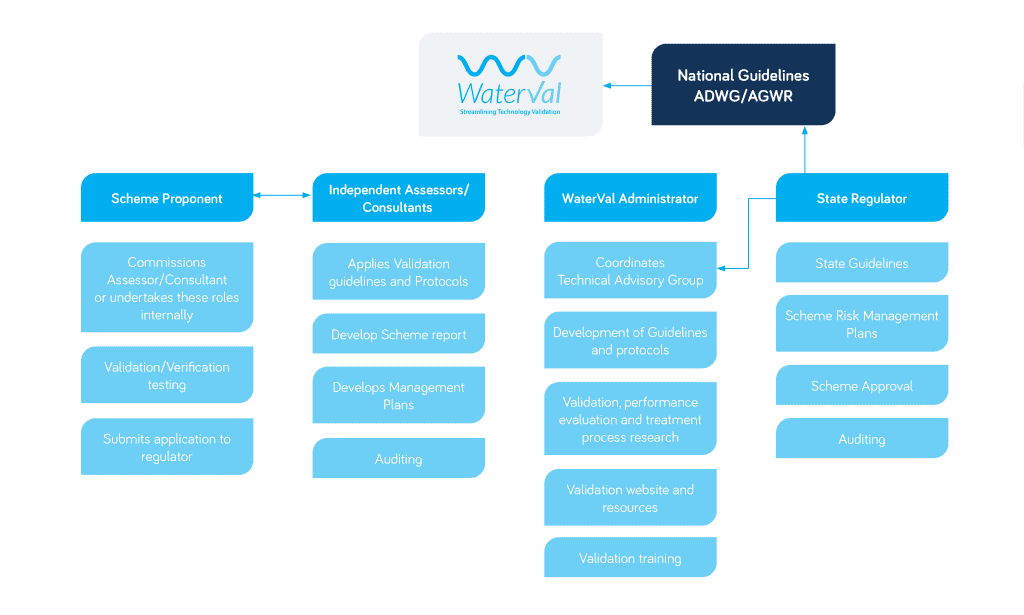
Protocol Elements
Based on national and international best practice, and backed by rigorous scientific research, each Validation Protocol has been designed based on nine Protocol Elements, ensuring consistency and uniformity.
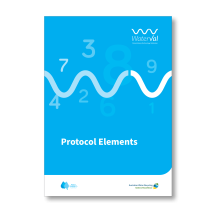
Current Protocols
The Validation Protocols are grounded in the latest research findings and industry best practice. Through extensive collaboration, a national consensus has been achieved, establishing uniform validation testing methods, processes, and documentation standards for validation protocols. This consensus ensures consistency and reliability across the board, advancing confidence in the validation process and its outcomes.
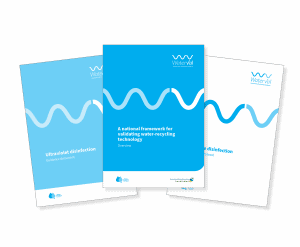
Treatment Processes
The performance of a water treatment scheme is based on the design of the individual treatment processes and the technology used. Validation guidance and protocols are grounded in the latest research findings and industry best practice to meet the requirements for validation and demonstrate the contaminant reduction for individual treatment processes.

Current Research
More Information
Dr Marty Hancock | Research Manager | marty.hancock@waterra.com.au



